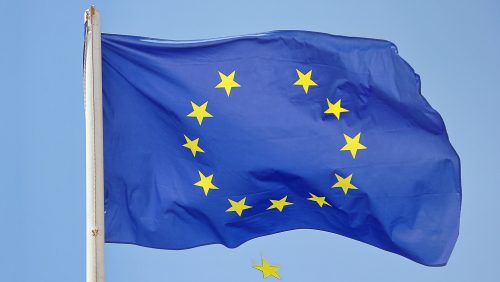The UK’s Post-Brexit Foreign and Security Policy and the Centrality of NATO
March 24, 2020 by Editor

By: Lucy Baeurle
On February 3, 2020 the Center for Strategic and International Studies hosted a conversation with The Right Honourable Doctor Liam Fox, titled “The UK’s Post-Brexit Foreign and Security Policy and the Centrality of NATO.” Dr. Fox is the former United Kingdom (UK) Secretary of State for Defense (2010-2011) and Secretary of State for International Trade (2016-2019). Also, he is a conservative MP who campaigned for Britain to leave the European Union.
Brexit, officially finalized on January 31st, has caused many to wonder what a global Britain means. Dr. Fox stated that, despite its divorce from the European Union (EU), the UK will not enter into isolationism–in fact quite the opposite. Dr. Fox stressed the importance for both the UK and the EU to work together to create new trade and security arrangements in order to effectively deal with common threats and challenges. Dr. Fox highlighted pressing security threats from state and non-state actors. For example, regional conflicts in Russia, Iran, and China are areas of particular concern for the UK and its allies. Dr. Fox noted that “a regional conflict could quickly become a global economic crisis” and thus it is important to view foreign authoritarian regimes as matters of domestic concern.
Iran and China illustrate this concept. Iran’s regime is connected both to instability within the Middle East and terror activities in Paris and London. Dr. Fox stated that the current approach to Iran has not worked, and that we must match fanaticism with consistency and resolve. Similarly, Dr. Fox discussed the threat of Chinese nationalism, specifically China’s cyber attacks and acquisitive policy towards territories in the South China Sea. Dr. Fox stated that China’s goal is to make the world more accepting of totalitarian regimes and that Chinese nationalism may prove to be a greater adversary than the communist Soviet Union. To counteract this threat, Dr. Fox stressed the importance for the UK and its allies to make the world safer for democracies based on the rule of law.
According to Dr. Fox, the North Atlantic Treaty Organization (NATO) will be heavily involved in the UK’s post-Brexit security policy. Dr. Fox explained that, while NATO’s role during the Cold War was focused on stopping communism, it has shifted to understanding the regional political instabilities that can result in security concerns. This includes understanding and diffusing political tensions before military intervention becomes necessary. Advancements in space and cyberspace have changed NATO’s playing field, and NATO must adapt to effectively respond to threats in these fields. Dr. Fox once again emphasized the importance of paying attention to distant threats, as globalization has made the UK and US vulnerable to instability from “over there.” Also, Dr. Fox emphasized NATO’s future role, not as a “troop provider,” but rather as a collaborator with political, civilian, and non-profit organization groups.
Finally, Dr. Fox touched on the importance of ideology. He explained that the UK and its allies are defined by their traditions of upholding individual rights, democracy, and freedom. These are goals that the UK wants for all human beings. Cooperation with its allies is the best and safest way for the UK to realize its goals and face global challenges in the future.

